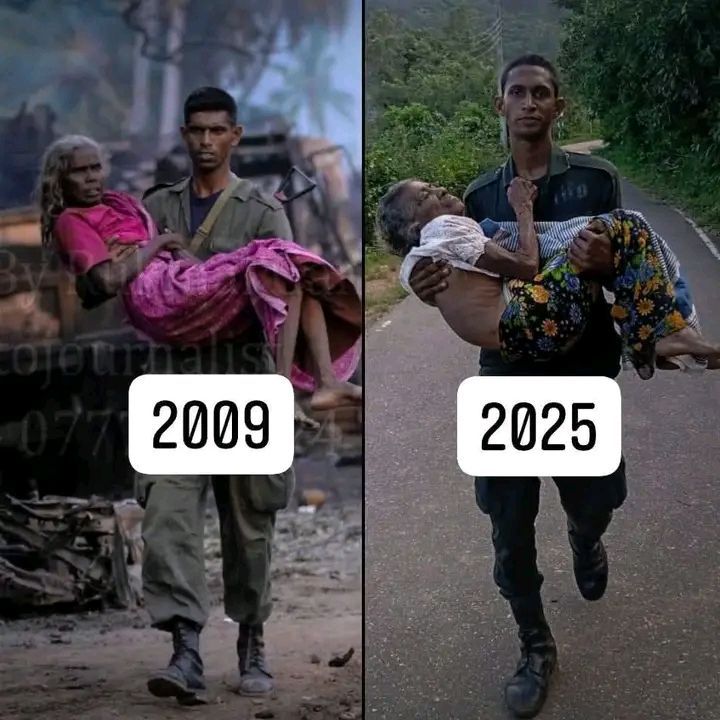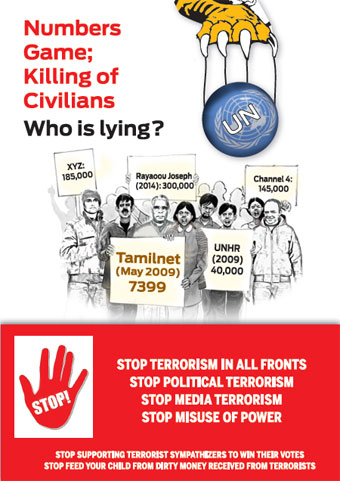Towards a Buddhist approach in Jurisprudence
Friday, 09 May 2014

International conference on Buddhist Jurisprudence 2014 at the Lakshman Kadirgamar Institute on May 10 and 11
International Law at present is greatly influenced by Western thinking and ideals whilst there is very little input of  Buddhist concepts. Thus we are of firm belief that it is time that we unearth and nurture the existing Jurisprudence with Buddhist concepts and values especially in the field of Humanitarian Law, International Dispute resolution etc. It is our view that understanding, formulation and implementation of International Humanitarian Law and Human rights need to be looked at not from the point of view that it is looked at in present but from the point of view of Metta, Karuna, Mudita and Upekka. Therefore it is high time that we should move away from the Western approach to a more humane Buddhist outlook.
Buddhist concepts. Thus we are of firm belief that it is time that we unearth and nurture the existing Jurisprudence with Buddhist concepts and values especially in the field of Humanitarian Law, International Dispute resolution etc. It is our view that understanding, formulation and implementation of International Humanitarian Law and Human rights need to be looked at not from the point of view that it is looked at in present but from the point of view of Metta, Karuna, Mudita and Upekka. Therefore it is high time that we should move away from the Western approach to a more humane Buddhist outlook.
Another objective of this conference is to bring together Buddhist countries and their Jurists, Academics and Lawyers initially in this region and extend it worldwide. This will further help to understand the common issues of Buddhist countries.
This kind of an association would assist Buddhist Jurists, Academics and Lawyers to exchange their knowledge among them and contribute to the development of the law. The inaugural ceremony of the conference will be graced by Chief Justice Mohan Peiris with the Chief Justice of Bhutan Lyonpo Sonam Tobgye attending as the Chief Guest. Attorney General Palitha Fernando will also be attending the conference in which a host of Buddhist and Legal scholars would be presenting papers on Buddhist concepts pertaining to all areas of law.
The present conference came about following a visit to India in August 2012, by my family on pilgrimage and was treading the path of the Buddha. It was a moment of deep emotion with faith when we arrived in Varanasi and Saranath. It was after a long journey of Savatthi, Kapilawastu, Lumbini, Rajagaha, Nalanda, Viaishali, Kushinagar and Bodhgaya. We participated in daily chanting of Dhammachakka Pavattana Sutta at 6.30 p.m. at Mulagandhakuti Vihara, when we received a call from the travel agent that the customary boat trip on the river Ganges which was scheduled early morning the following day was cancelled. Therefore we decided to come back to Saranath again as an alternative.
 During the return visit to Saranath, we met Bhante Pelwatte Seevali, a Buddhist monk from Sri Lanka who is the resident viharadhipathi of the Mulagandhikuti Vihara and Joint Secretary – Indian Maha Bodhi Society. During the course of discussion Venerable Thera discovered that I am a Lawyer by profession. He invited me to attend a “Buddhist Jurisprudence” seminar which I willingly accepted.
During the return visit to Saranath, we met Bhante Pelwatte Seevali, a Buddhist monk from Sri Lanka who is the resident viharadhipathi of the Mulagandhikuti Vihara and Joint Secretary – Indian Maha Bodhi Society. During the course of discussion Venerable Thera discovered that I am a Lawyer by profession. He invited me to attend a “Buddhist Jurisprudence” seminar which I willingly accepted.
The Seminar was attended by the Chief Justice of Bhutan, Lyonpo Sonam Tobgye. Bhutan is a unique country which introduced “Gross National Happiness” as an indicator of growth with the king abdicating his powers and establishing a democratic process of governance. Its chief justice Lyonpo Sonam Tobgye is on a mission to discover the Buddhist principles relevant to jurisprudence and had requested Bhante Seevali to organize a seminar on “Buddhist Jurisprudence” a Varanasi, the place were Buddha preached his first sermon.
After returning to Sri Lanka, I spoke to Mr. Manohara De Silva, President’s Council with whom I have worked for the last ten years as a team on many legal issue pertinent to Buddhism, such as anti conversion by improper means, Digawapi case, empowering Article 10 of the constitution etc. He consented to travel with me to Varanasi.
Manohara, Maheshee De Alwis, Attorney-at-Law and myself flew to Varanasi to attend the seminar on 15th, 16th February 2013. After the solemn yet impressive opening ceremony at the premises of Mulagandhikuti Vihara, the technical sessions were held in the Tibetan University.
Chief Justice Lyonpo Sonam Tobgye chaired the session and also presented on the board thee of governance. Presentation of Justice Lungten Dubgyer of Bhuta was based on Justice System and rituals of ancient Bhutan.
Manohara dealt with the subject of constitutionalism and Buddhist concepts whilst I presented the relationship of Buddhist Philosophy with criminal law, punishment, and human rights. Tibetan and Indian Buddhist scholars also participated in the discussion. At the end of the conference we were amazed with the similarities of Buddha and legal concepts and how Buddhist Philosophy can be used in modern jurisprudence to bring Law and Order, peace to the conflicting present world.
“Another objective of this conference is to bring together Buddhist countries and their Jurists, Academics and Lawyers initially in this region and extend it worldwide. This will further help to understand the common issues of Buddhist countries. This kind of an association would assist Buddhist Jurists, Academics and Lawyers to exchange their knowledge among them and contribute to the development of the law
On September 21, 2012 the foundation was laid in Sanchi to build a Buddhist University attended by the President of Sri Lanka and the Prime Minister of Bhutan. To coincide with this event the Dhamma-Dharma conference was held in Bhopal. Buddhist Scholars including myself participated and presented interesting and comprehensive research papers. I was amazed with the deep knowledge of Dhamma especially among young Buddhist priests and young lay Buddhist scholars. This led to the initial link between Buddhist and legal scholarship.
Manohara and I were delegates to a SAARC Law conference held in Bhutan from 24-26th May 2013 where we got an opportunity to discuss with the Chief Justice of Bhutan many aspects of Buddhist Philosophy and law. It was resolved that Sri Lanka should initiate a process to research on “Buddhist Jurisprudence” with an objective of having the conference in January 2014. Research papers are to be published and uploaded to the Cyber space, so that the entire world will have access to it.
This idea was presented to External Affairs Minister G.L. Peiris who hails from a family with Buddhist traditions and also is a former Dean of the Faculty of Law and Vice Chancellor of the University of Colombo. They warmly accepted the concept and gave encouragement to proceed.
It is pertinent to note that late Mr. Lakshman Kadirgamar, PC and former Minister of Foreign Affairs was instrumental in getting Vesak Day recognized by the United Nations and initiated to pass a resolution at UNESCO against the defiling of religious symbols.
Courtesy: Daily Mirror
2271 Viewers








